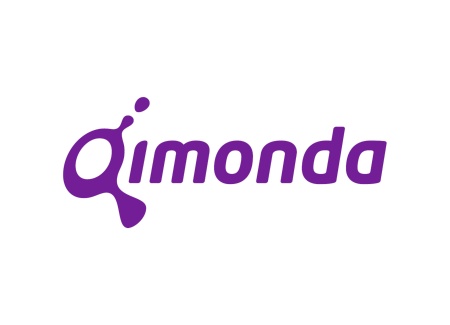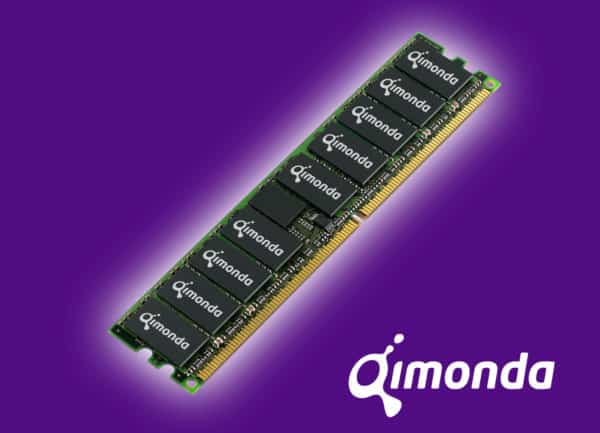Qimonda
Qimonda AG was a semiconductor company with its headquarters in Munich. The company was 77.5 percent majority stake in Infineon Technologies AG.
In fiscal year 2008 generated net sales of 1.79 billion euros and employed at 31 December 2008 11,079 worldwide employees, of whom 1,707 were employed in research and development.
Due to the large drop in the industry Qimonda went into bankruptcy in early 2009.
History
Foundation
Qimonda AG was founded in May 2004 under the name Invot AG as a subsidiary of Infineon Technologies AG and renamed on April 6, 2006 Qimonda AG. With effect from 1 May 2006, Infineon Technologies AG introduced its memory chip division in this society. The company's management approached at this time, the native Malay Kin Wah Loh, who was responsible for the storage division of the parent company since the summer of 2005.
On August 9, followed in 2006 with an issue price of $ 13.00 the company public on the New York Stock Exchange.
Insolvency
On October 13, 2008, Qimonda announced an austerity program known, which provided for the elimination of 3,000 of the 13,500 jobs worldwide. Primarily, the locations Munich, Dresden and Richmond ( USA) should be concerned. In addition, the resignation of CFO Michael Majerus was announced. Until the fall of 2009 as the world should be saved around 450 million euros annually. Qimonda also sold its 35.6 percent stake in the memory chip manufacturer Inotera, a joint venture with the Taiwanese Nanya Group, to US-based Micron Technology.
Since mid-2008 the main shareholder Infineon sought claims to be seeking a buyer for Qimonda, as the company imports heavy losses. As a serious strategic partners and investors, the company Hynix Semiconductor and Micron were brought into the conversation. At this time, Qimonda published reports on the development of " buried wordline technology " which should make it at feature sizes of 30 nanometers chip with twice the storage capacity as before with the trench technique ( the capacitor of a DRAM cell was as deep hole in the silicon substrate realized) to produce. Qimonda was the only of the major DRAM manufacturer that still used the trench technology. Other manufacturers, however, used the so-called stack technology. In addition to a significant reduction in manufacturing costs, this also means a significantly lower energy consumption of memory chips.
Infineon sought after media reports to government assistance of the federal state of Saxony and the Federal Republic of Germany. Was notified on 21 December 2008 that Portugal (100 million euros ), Saxony (150 million euros ) and Infineon (75 million euros ) would continue to finance with a loan of 325 million euros, the company together. However, a condition for the payment of money was the receipt of the factories in Saxony (Dresden ) and Portugal ( Vila do Conde ).
On 23 January 2009, the Munich District Court ordered the provisional insolvency administration and appointed attorney Michael Jaffé as first provisional liquidator. The production could initially be continued, however, had to be set in April 2009, the factories in Richmond, Portugal and Germany were closed during the year. The remains of the factory in Dresden were taken in May 2011 of Infineon.
Today Qimonda AG iI and the U.S. subsidiary Qimonda Licensing LLC to market the existing license and patent portfolio of approximately 4,500 patent families.
Term interpretation
The name " Qimonda " can be pronounced well and in a similar way in most languages . According to Infineon, the name " universal qualities that work across the globe ." Qi is ( in this debate in Mandarin Chinese, in another debate in several East Asian languages ) for "breathing and flowing energy ." In Western culture, where the languages are almost all related to the Latin and greatly influenced by English, the name as " Key to the World " (key - monda ) should be interpreted.
Aeneon
Aeneon was founded in 2004 as a division, then still the Memory Products segment of Infineon. Under the brand Aeneon sales Qimonda DRAM modules for notebooks, PCs and server systems, as well as flash products such as USB sticks, SD cards and microSD cards.
Aeneon was the brand for the retail and channel business of Qimonda AG and thus employed the end-user through dealer and PC assembler with memory products. Since January 2010, no Aeneon products more available.










